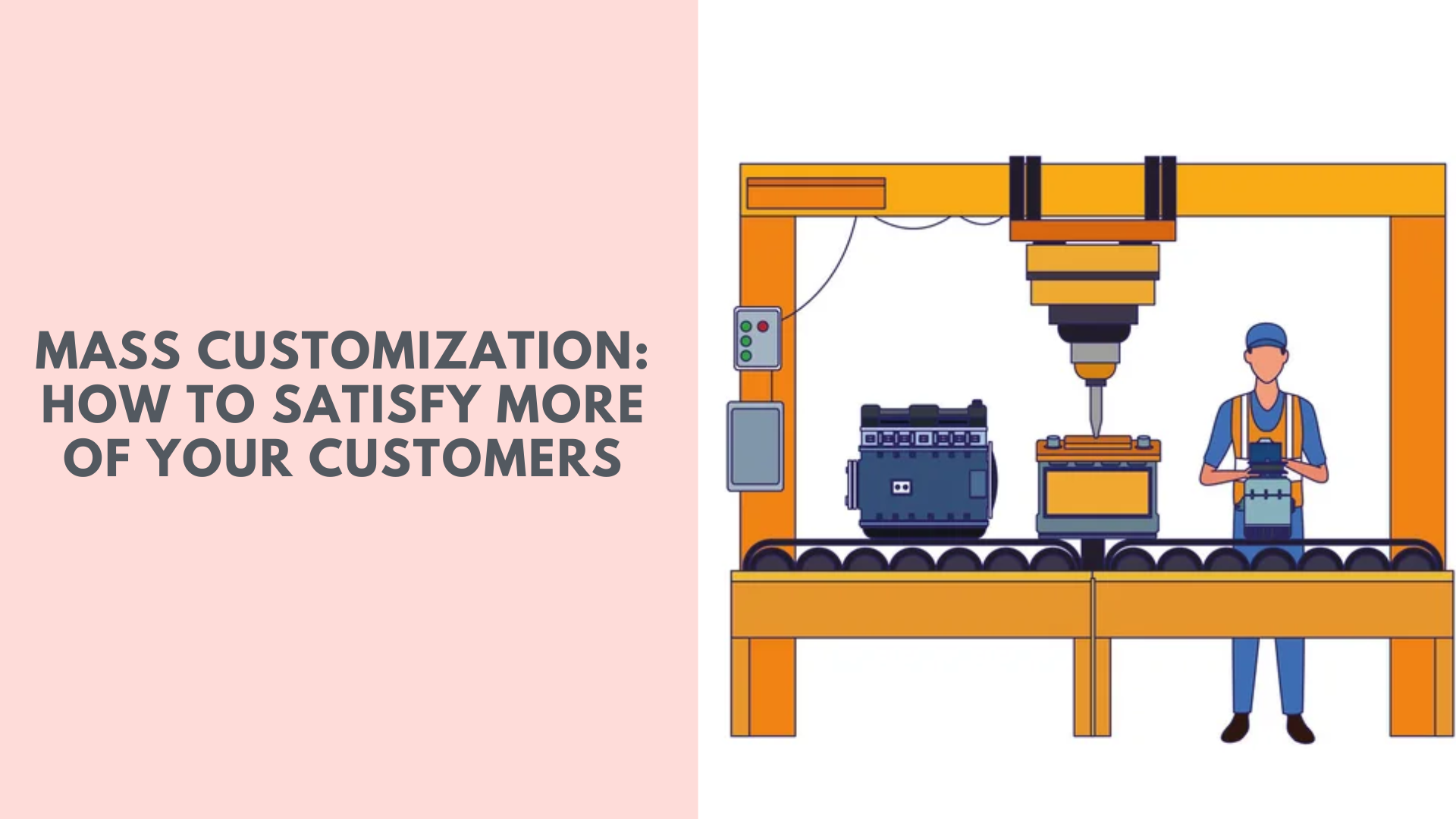In today’s highly competitive market, businesses are constantly seeking ways to stand out and cater to the unique needs of their customers. One powerful strategy that has gained traction is mass customization. This approach allows companies to offer personalized products or services to a large number of customers, blending the efficiency of mass production with the bespoke quality of individualized offerings. In this blog, we’ll explore the concept of mass customization, its benefits, and how businesses can effectively implement it to satisfy more of their customers.
What is Mass Customization?
Mass customization is the process of delivering goods and services that meet individual customer’s needs with near mass production efficiency. Unlike traditional mass production, which focuses on producing large quantities of identical products, mass customization recognizes the diversity of consumer preferences and aims to provide tailored solutions on a large scale.
The Benefits of Mass Customization
- Enhanced Customer Satisfaction
- Personalized Experience: Customers feel valued when they receive products tailored to their preferences, leading to higher satisfaction and loyalty.
- Improved Fit: Customization ensures that products fit customers’ specific needs and desires, reducing the likelihood of returns and complaints.
- Competitive Advantage
- Differentiation: Offering unique, customized products can set a company apart from competitors who rely on standard, off-the-shelf items.
- Brand Loyalty: Businesses that consistently meet individual needs are more likely to build a loyal customer base.
- Increased Sales and Revenue
- Higher Willingness to Pay: Customers are often willing to pay a premium for products that reflect their personal tastes and requirements.
- Cross-Selling Opportunities: Understanding customer preferences can lead to better recommendations and upselling of complementary products or services.
- Efficient Production Processes
- Technology Integration: Advances in technology, such as 3D printing and AI, have made it easier and more cost-effective to produce customized products.
- Data Utilization: Leveraging customer data enables businesses to anticipate trends and streamline production processes to accommodate customization.
Implementing Mass Customization
- Understanding Customer Needs
- Market Research: Conduct thorough market research to understand the diverse needs and preferences of your target audience.
- Customer Feedback: Regularly collect and analyze customer feedback to identify areas for customization and improvement.
- Leveraging Technology
- 3D Printing and Automation: Utilize 3D printing and automated manufacturing systems to create customized products efficiently.
- AI and Machine Learning: Implement AI-driven algorithms to analyze customer data and predict preferences, enabling more accurate customization.
- Flexible Production Processes
- Modular Design: Adopt a modular approach to product design, where components can be easily interchanged or customized based on customer specifications.
- Agile Supply Chain: Develop an agile supply chain that can quickly adapt to changes in demand and incorporate customization without significant delays.
- Customer-Centric Marketing
- Personalized Marketing Campaigns: Use data-driven insights to create targeted marketing campaigns that highlight the benefits of customization.
- Engage with Customers: Encourage customer engagement through social media, surveys, and feedback loops to continuously refine and improve your offerings.
- Scalable Solutions
- Software Solutions: Invest in software that can manage customization requests and integrate seamlessly with production systems.
- Training and Development: Ensure your team is well-trained in managing customization processes and delivering exceptional customer service.
Real-World Examples
- Nike By You: Nike allows customers to design their own shoes, choosing colors, materials, and even adding personalized text. This approach has helped Nike build strong brand loyalty and attract a wide range of customers.
- Coca-Cola’s Personalized Bottles: Coca-Cola’s “Share a Coke” campaign, which featured bottles with popular names, was a huge success. It created a personal connection with customers and drove sales significantly.
- Dell Computers: Dell’s build-to-order model allows customers to select the components they want in their computers, ensuring they get a product that meets their specific needs.
Conclusion
Mass customization is a powerful strategy that can help businesses meet the diverse needs of their customers while maintaining the efficiency of mass production. By understanding customer preferences, leveraging technology, and implementing flexible production processes, companies can deliver personalized products that enhance customer satisfaction, drive sales, and provide a competitive edge. As consumer expectations continue to evolve, businesses that embrace mass customization will be better positioned to thrive in the modern marketplace.









